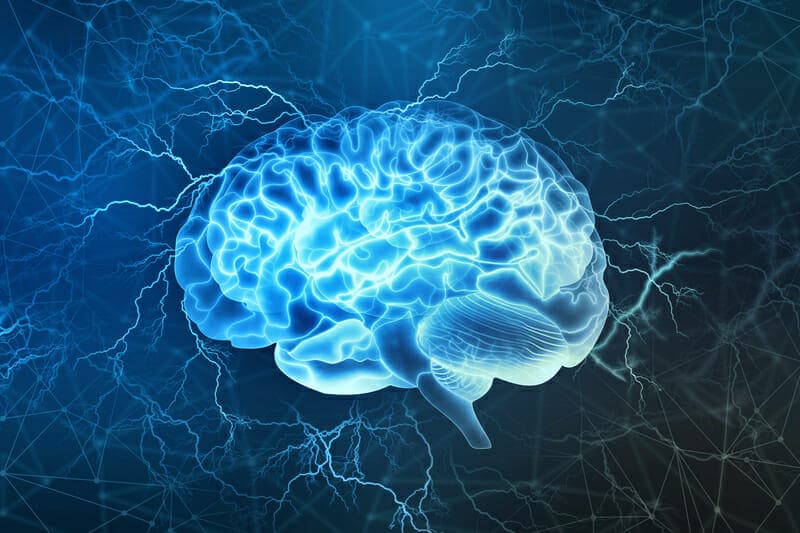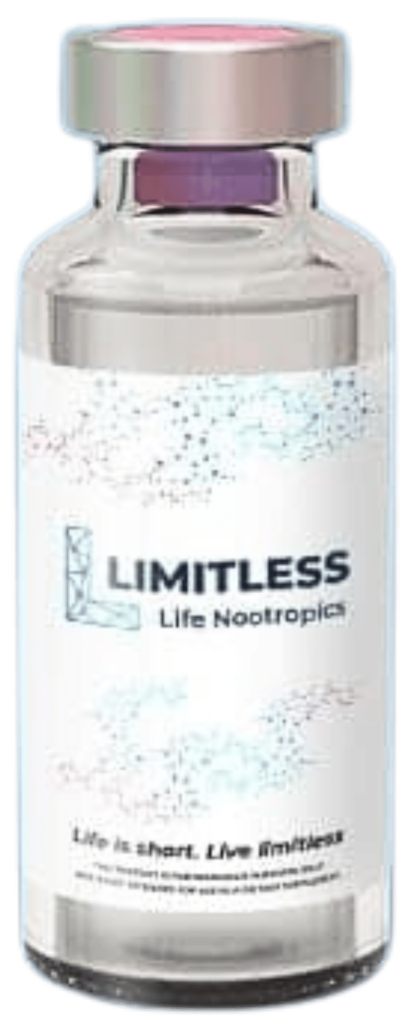Is Dihexa a miracle peptide for healing neurodegeneration and the cognitive diseases that manifest because of it?
You’ll find the exact answer to that question in this article, as cognitive decline is a GROWING issue in the United States:
“Subjective Cognitive Decline (SCD) is the self-reported experience of worsening or more frequent confusion or memory loss. It is a form of cognitive impairment and one of the earliest noticeable symptoms of Alzheimer’s disease and related dementias.
…The prevalence of subjective cognitive decline (SCD) is 11.1%, or 1 in 9 adults. The prevalence of SCD among adults aged 65 years and older is 11.7% compared to 10.8% among adults 45-64 years of age.”
According to the Centers for Disease Control and Prevention, this means that over 16 million people in the USA suffer from cognitive impariment (TWICE the entire population of New York City).
This means we need to take a proactive effort in our brain health, and Dihexa may be the therapeutic peptide of choice for fighting against age-related cognitive decline.
So how exactly does the Dihexa peptide work in the human body?
Can it be used as one of the many peptides for brain function in healthy individuals?
And exactly how safe is Dihexa for human consumption, based on the limited scientific data available?
This comprehensive guide to Dihexa will answer all of these questions, and much more!
Table of Contents
ToggleWhat is Dihexa?
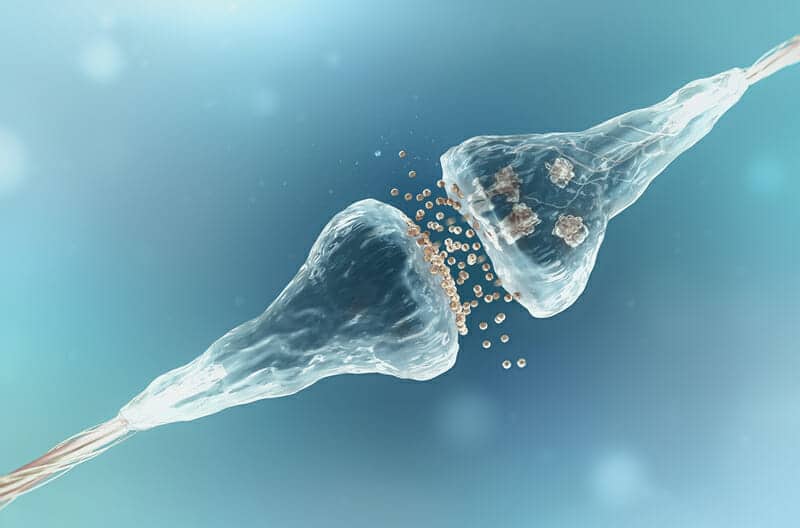
Dihexa (also known by its code name PNB-0408, or its technical name N-hexanoic-Tyr-Ile-(6) aminohexanoic amide) is a six-amino-acid peptide directly derived from Angiotensin IV (Ang IV).
And in case you don’t know what Ang IV is, it’s “a derivative of the potent vasoconstrictor angiotensin II and it has been shown to enhance acquisition, consolidation and recall in animal models of learning and memory when administered centrally or peripherally” (Source: PubMed).
We could just synthesize Angiotensin IV and use that instead, but numerous problems exist with this option:
“…angiotensin IV is a peptide hormone and is therefore highly susceptible to degradation by proteolytic enzymes to products unlikely to have specific physiological activity. Consequently, its usefulness as an exogenous pharmaceutical agent is limited.”
This problem was quickly discovered by medicinal chemist Dr. Joseph Harding of Washington State University and his team, who were also some of the first researchers to discover Ang IV’s cognition-healing properties in the early 1990s.
The team had to overcome NUMEROUS obstacles in creating viable Ang IV analogs, such as the loss of funding from pharmaceutical giant Eli Lily (due to their failure to disclose to patients that Prozac may cause birth defects).
Dr. Harding and his team finally achieved a breakthrough when they focused on the SPECIFIC parts of Ang IV responsible for its cognitive properties:
“Harding and his colleagues began to zero in on the precise peptides necessary for the procognitive properties of a particularly promising analogue, Nle-Angiotensin-IV and arrived at the tripeptide sequence Nle-Tyr-Ile. This sequence was then modified to increase its stability and lipophilicity.
This progress attracted the attention of [Alzheimer’s Drug Discovery Foundation] and [Washington State University], which have been funding the project since. Eventually, one particular modified analogue, MM-201, later known as Dihexa, distinguished itself from the rest of the pack, even going as far as to boost the performance of impaired mice beyond that of non-impaired controls.”
(FYI – the link I just referenced above is an excellent read on the history of Dihexa and how it works in the human body)
The Dihexa peptide wasn’t formally discovered until 2007, and its first scientific study in rats wasn’t published until 2012 (more on that study later).
So what we have here is a therapeutic peptide that was nearly 20 years in the making before it finally gained prominence in the pharmaceutical industry.
Something that delivered the intended results while avoiding the common problems of poor permeability and stability.
How Does Dihexa Work?
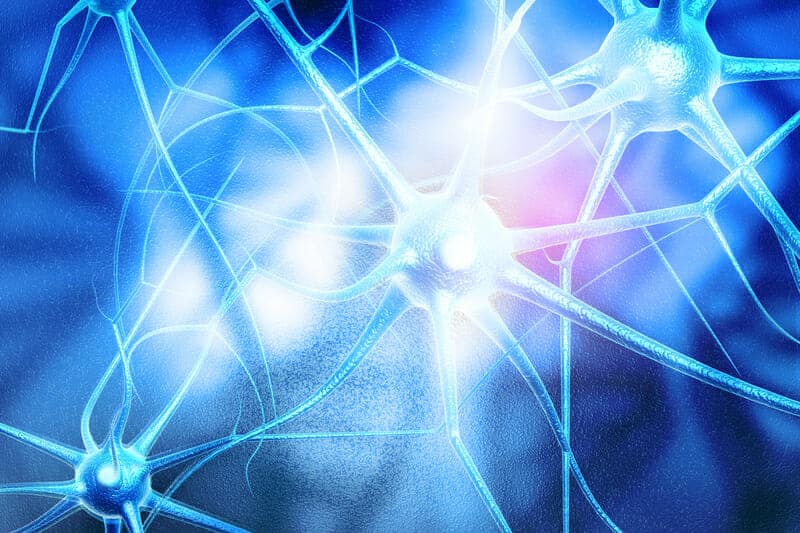
So how exactly does the Dihexa peptide exert its positive effects on cognitive health and fight against neurodegeneration?
We don’t know the precise answer just yet, but numerous explanations have been offered.
One possible mechanism of action for Dihexa involves the synthesis of new synapses, formally known as synaptogenesis:
“It is an orally-active first-in-class compound that passes through the blood-brain barrier and enhances both memory consolidation and retrieval.
Since the drug helps to form new functional synapses, it facilitates augmentation of synaptic connectivity through the newly formed synapses to treat not just memory issues but motor dysfunctions as well.”
Dihexa has also been found to activate the formation of dendritic spines (responsible for transmitting electric signals to neuron cells).
For these reasons, some scientists speculate that Dihexa may be useful for treating dementia.
Some argue that Dihexa’s primary mechanism of action involves being 7 orders of magnitude more powerful than brain-derived neurotrophic factor (BDNF):
“Currently, the “gold standard” compound for creating neuronal connections is brain-derived neurotrophic factor, or BDNF, a growth-promoting protein associated with normal brain development and learning. Autopsies of Alzheimer’s patients have found lower levels of BDNF in the brain.”
“…[Wright et al.] found Dihexa to be seven orders of magnitude more powerful than BDNF, which has yet to be effectively developed for therapeutic use. In other words, it would take 10 million times as much BDNF to get as much new synapse formation as Dihexa.”
As readers of the Metabolic Blowtorch Diet already know, BDNF “helps the brain to develop new connections, repair failing brain cells, and protect healthy brain cells” (Source).
A third mechanism of action for Dihexa has to do with the activation of hepatocyte growth factor (HGF), which is implicated in the regulation of numerous brain functions:
“Dihexa can bind to and dimerize HGF, forming a functional ligand and thereby activating c-Met. HGF signaling is linked to neural protection in rodents both in vitro and in vivo, making a strong case for a small molecule activator of HGF/c-Met to confer a neuroprotective benefit”
(NOTE: HFG is implicated in the regulation of numerous brain functions, such as synapse formation)
Additionally, Dr. William Seeds has suggested that the Dihexa peptide may possess some anti-inflammatory properties:
“You need to make the brain work well, but at the same time it has activity of where it can work against this microglial cell that can go bad, and when a microglial cell goes bad, it goes through what we call a phase change and, Dihexa can actually go right in and change the phase of a pro-inflammatory microglial cell back to an anti-inflammatory microglial cell.”
And while this isn’t an official mechanism of action, numerous studies (here and here) have confirmed Dihexa’s ability to cross the blood-brain-barrier in a way where it can help strengthen the formation of memories (all while maintaining optimal metabolic stability).
Combined with Dihexa’s exceptionally long half-life of 12-13 days, you have a therapeutic peptide for cognitive health that exerts its effects long after administration.
Dihexa Benefits

Based on what we know so far, the main benefits of the Dihexa peptide involve the potential treatment of neurodegeneration and other forms of cognitive dysfunction.
If you attempt to search for Dihexa on PubMed, you’ll be disappointed to see only 7 studies published between 1992 and 2020.
And anecdotal reports claim that Dihexa can improve your focus, boost your mental stamina, and enhance your creative thinking skills.
Let’s dig into the limited scientific evidence available and explore all potential Dihexa benefits for brain health…
May Reverse Neurological Damage Induced by Alzheimer’s Disease
When you look at the majority of drugs meant to treat Alzheimer’s disease, the best they can do is slow down the rate of disease progression by inhibiting cell death:
“Donepezil, rivastigmine and galantamine all prevent an enzyme called acetylcholinesterase from breaking down acetylcholine. This means there is a higher concentration of acetylcholine in the brain, which leads to better communication between nerve cells. This may ease some symptoms of Alzheimer’s disease for a while”
The same can be said for Memantine, which attempts to block the effects of excessive glutamate production (which causes further damage to the nerve cells).
But in the animal studies done thus far, the Dihexa peptide can reportedly reverse the inflicted brain damage, specifically in the synapse between neurons:
“Unlike current Alzheimer’s treatments which either slow the process of cell death or inhibit cholinesterase, an enzyme believed to break down a key neurotransmitter involved in learning and memory development, Dihexa is a neuropeptide that is intended to repair brain damage that has already occurred”
This was first discovered in a rat study conducted by Dr. Joseph Harding in 2012, where the animals’ cognition was evaluated through a water maze test:
“For their trial, the research team tested their drug on rats with Alzheimer’s-like mental impairment created by the chemical scopolamine (it jams up a neurotransmitter involved with both learning and memory).
The drug, taken orally or by injection, helped reverse befuddlement so the rats could learn the location of a submerged platform in a water tank. Interestingly, the team obtained similar but more moderate results testing on older rats”
In one review that examined Angiotensin IV analogs for the treatment of Alzheimer’s, Dihexa “shows promise in overcoming memory and motor dysfunctions by augmenting synaptic connectivity via the formation of new functional synapses” (Source: PubMed).
Unlike the other analogs, Dihexa possesses three essential properties: It is orally active, metabolically stable, and passes through the blood-brain-barrier to exert its biological effects.
A supposedly superior Dihexa analog by the code name “ATH-1017” (a.k.a. NDX-1017) is being developed by Athira Pharma, and is currently in Phase II clinical trials for treating Alzheimer’s Disease.
Being Investigated for Treating Parkinson’s Disease
Given what we know about Dihexa for potentially treating Alzheimer’s, it may possibly be beneficial in the treatment of other neurodegenerative disorders.
Dr. Joseph Harding, in collaboration with the Michael J. Fox Foundation for Parkinson’s Research, started a project in 2013 that aimed to examine the use of Dihexa for Parkinson’s disease in a pre-clinical cell model:
“The project will first investigate the ability of Dihexa, a hepatocyte growth factor activator, to prevent the development of Parkinson-like symptoms in a pre-clinical model of Parkinson’s disease.
Motor function and nerve cell health will be monitored. Next we will determine whether Dihexa is capable of restoring motor function in pre-clinical models that are already exhibiting motor deficits.
Additionally, we will examine two possible mechanisms: the induction of new connections among remaining nerve cells and the generation of new nerve cells from stem cells already present in the brain.”
The goal of the project was two-fold… see if Dihexa can reverse the nerve cell damage induced by Parkinson’s disease, and then determine if Dihexa can prevent Parkinson’s disease from developing in the first place.
The results were promising in that the Dihexa peptide restored lost motor function to full capacity.
It is uncertain if Dihexa led to the growth of new nerve cells and/or healed surviving neurons, but further investigation is obviously needed for this application of the peptide.
May Enhance Cognition Across Numerous Domains (Anecdotal)
While it’s fairly clear that Dihexa is primarily meant to be used in senior patients with cognitive difficulties, healthy biohackers are curious to see if Dihexa could possibly be used as a nootropic.
The only official source for making this kind of claim comes from Dr. Daniel Stickler of the biotech company Aperion, who says his formulated Dihexa cream could help people master languages and learn how to play musical instruments at a faster pace:
“It has been granted initial approval for use in the US following safety trials and is being prescribed to boost general mental performance. [Dr. Stickler] prescribes dihexa when clients want to achieve specific goals.”STICKLER: “Dihexa is a very short peptide, just six amino acids, and it can be rubbed into the skin… It’s amazing for learning and memory. They are doing it in clinical trials for dementia and traumatic brain injury and Alzheimer’s but it’s also really good, if you’re learning to play the guitar or something, for creating that kind of mental response.”
(NOTE: Dr. Stickler claims that “granted initial approval for use in the US following safety trials and is being prescribed to boost general mental performance,” while also saying the cream will not be available for sale in the UK until 2024-2025)
This has not stopped people from sourcing the Dihexa peptide by themselves and determining how it can affect their individual mental faculties.
Some of the anecdotal claims I have seen on independent third-party forums – primarily Reddit – include:
- Improved ability to process information more efficiently
- “Huge boost in reflexes” (i.e. faster reaction time)
- Better problem-solving skills and reasoning ability
- Increased verbal fluency
- Recovered cognitive performance, following a depressive episode
- Enhanced creativity and social awareness
- Lower levels of anxiety, alongside a noticeable positive difference in mental endurance
To put this another way, any observed Dihexa benefits for cognitive enhancement in healthy people appear to be entirely individual to the user.
Dihexa’s Side Effects, Safety Profile, and Limitations

Knowing that the clinical studies on Dihexa are virtually non-existent, how safe is Dihexa?
And what Dihexa side effects could possibly exist?
First off, know that scientists are currently attempting to create a superior version of Dihexa:
“Additional refinements to [Dihexa’s] structure to limit both phase 1 and phase 2 hepatic metabolism and first pass clearance, to reduce metabolism by gastric enzymes and enhance oral bioavailability, and to diminish polar surface area and overall size to facilitate BBB [blood-brain barrier] penetrability are currently in progress.
…Subsequent efforts yielded a family of Dihexa-based molecules possessing increased hydrophobicity, decreased hydrogen bonding potential, and increased metabolic stability”
Yet according to a patent filed by Dr. Joseph Harding himself, Dihexa appears to be a safe and non-toxic peptide:
“Short duration safety studies with Dihexa have uncovered no apparent toxicity. Of particular note is a lack of neoplastic induction, since c-Met is recognized as an oncogene. This is unsurprising since oncogenesis requires multiple mutations including both oncogene induction and tumor suppressor attenuation.”
In other words… Dihexa’s only real “danger” is the fact that it has yet to undergo clinical trials with human subjects, and therefore we don’t have the full picture on any potential long-term side effects (such as alterations to the brain structure).
However… in the few courageous biohackers who have managed to get their hands on the Dihexa peptide and run a ~14-day cycle, there were some noticeable Dihexa side effects:
- Increased severity of “autistic-like” symptoms, such as hyperfocus
- Dihexa’s effects only take place when you are actively stimulating your brain (ex. doing creative work or learning new things)
- Rise in attention deficit
- Possible increase of water retention and a headache
- A lack of a meaningful response to using Dihexa (i.e. mixed results)
Please keep in mind that these side effects are not medically confirmed, as the Dihexa peptide was made in the 90s and is relatively “new” from a development standpoint.
And the consensus among Dihexa users is that while it may possess cognition-enhancing properties, it is far better suited for treating neurological damage in patients with suboptimal levels of cognitive health.
(NOTE: I am NOT advocating Dihexa as a substitute for seeing a medically licensed psychiatrist)
But I want to touch upon the last anecdotal side effect of Dihexa I listed, as I have used it once.
I personally did not find Dihexa to be superior to Modafinil, my go-to for increased cognition and enhanced productivity.
Your experience may be entirely different, so you will have to experiment with Dihexa and see how it affects you.
Moreover, Dihexa will likely be ineffective if your lifestyle habits are actively damaging your brain health.
Lack of physical exercise, obesity, diabetes, high blood pressure, lack of participation in mentally stimulating activities, and smoking are just a few examples of what can increase your risk of mild cognitive impairment.
Like I always say: Your #1 health priority is becoming a fully optimized man or woman before experimenting with peptides!
Dihexa Dose For Cognition

If you’re looking for the right Dihexa dosage for best results, the recommendations on the Internet vary significantly.
According to the majority of anecdotal testimonials I’ve compiled, the best Dihexa dose ranges anywhere between 8 mg and 45 mg taken daily.
The most popular method of administration is transdermal application, applying Dihexa cream onto the inner forearms and rubbing until the cream is absorbed.
However, other dosing methods have been experimented wit in the limited scientific evidence available for Dihexa.
The mice studies typically used an intravenous injection, while the ATH-1017 analog mentioned earlier (it supposedly gets converted into Dihexa in the body) employs a once-a-day subcutaneous injection.
As I mentioned in the previous section, I’ve only used the Dihexa peptide for a very short period of time and can’t comment on what an optimal dosing protocol would be.
So ultimately, it is up to the individual to experiment with different doses and different modes of administration to see what works best for them.
Where To Buy Dihexa
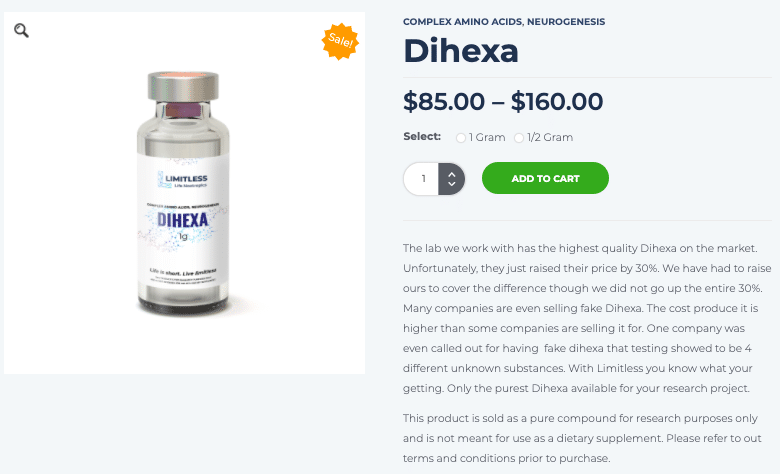
Anybody who is interested in exploring Dihexa’s cognition-repairing properties will come up short-handed if they use an impure, inappropriately dosed formulation.
If you want to guarantee that you get 99% pure Dihexa from the same vendor every single time, look no further than Limitless Life Nootropics.
Use code JAY15 to get 15% off your order!
The founder of this legitimate peptides vendor is the real deal – just see this interview I did with him!
You get exactly what you want with Limitless Life Nootropics: An extensive selection of high-quality peptides for very reasonable prices.
Additional Reading Resources for Dihexa
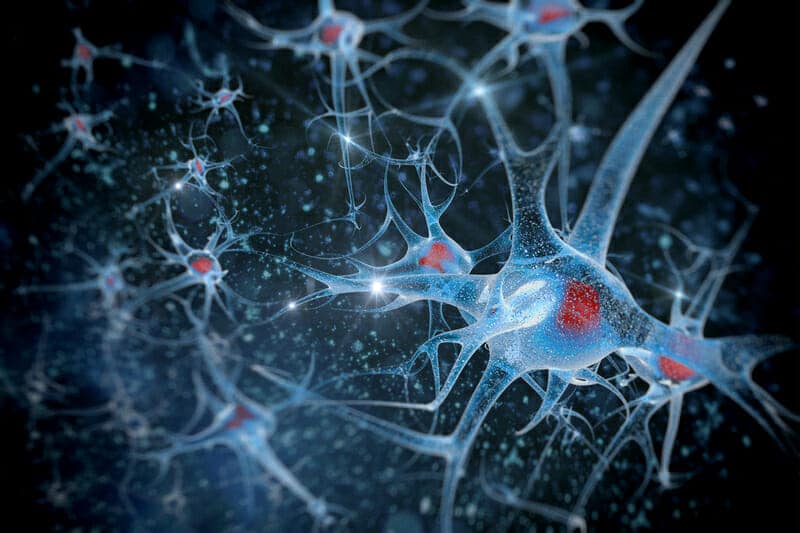
As I’ve pointed out earlier in this article, the amount of legitimate information about using the Dihexa peptide in humans is extremely limited.
That’s why I’ve taken the time to compile several resources for people who want to learn more about this peptide…
This YouTube video is a great “Dihexa 101” tutorial that summarizes the main points of this article:
Lucas Aoun from Ergogenic Health, a monthly contributor to my website, has his own “cheat sheet” for Dihexa that describes how to its the powdered form.
The Longevity Forum has a 56-page thread about Dihexa that’s been active since 2013 and has EVERYTHING you could want to know about the peptide – doses, first-hand experiences, analysis of scientific studies, and much more.
As always…
Raise Your Vibration To Optimize Your Love Creation!
Subscribe to my email list so you can get exclusive access to the world’s best health optimization intel before anybody else finds out about it!

